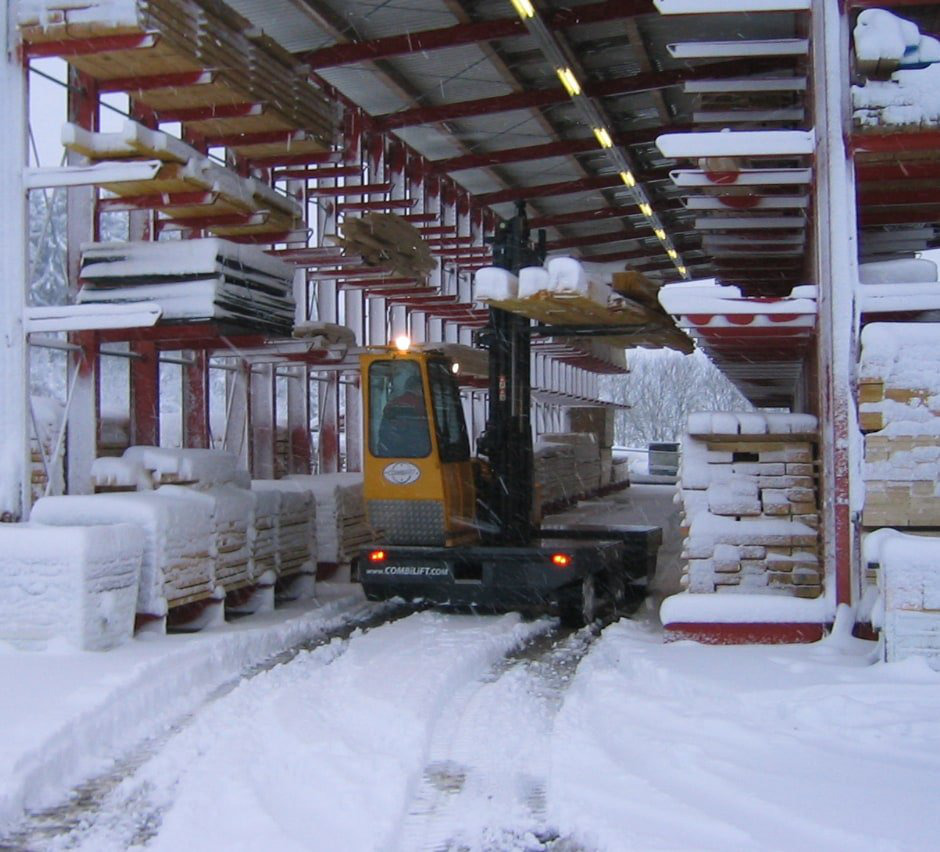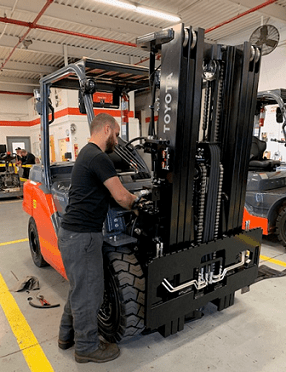Last year we were surprised when winter started with a decent amount of wet, heavy snow right before Thanksgiving. Do you agree that winter seems to start earlier year after year? Because of that, we have to prepare everything in our lives to accommodate for these severe conditions we encounter. This most certainly applies to your forklift fleet that works inside and outside of your facility.

Like cars, trucks and other vehicles, forklifts are susceptible to slipping and sliding on ice and snow. Given their heavy weight, they can easily slide down inclines or into embankments if not operated with extreme caution during heavy weather.
To prevent weather damage to your forklift fleet, make sure you don’t use forklifts designed for indoor work outdoors, especially when there is a lot of snow and ice on the ground. Keep indoor work areas—such as docks and warehouse floors—clean and clear of debris like snow and ice.
Be sure to have your forklifts checked out for any maintenance issues that may be lingering from the summer’s hot temperatures. The cold weather can, and will, wreak havoc on your fleet, especially if it is not being maintained correctly. Ensure the oil is being changed every 150-200 run time hours and that all fittings are being greased.

Cold temperatures and moisture can affect a forklift’s battery, hydraulics, electrical system and engine. It’s always a good idea to winterize your forklift fleet before the worst winter weather hits. Check oil levels and lubricants, make sure the battery is holding a charge properly, and double-check all of the vehicle’s primary operating systems such as the mast, tires and wheels to ensure they are operating appropriately.
It’s best to have a qualified technician check your forklift’s battery strength before the freezing temperatures hit. This will only take a few minutes but could save you quite a bit of downtime in the future. Perhaps most importantly, have a technician check and winterize your cooling system. Adjust the water to coolant ratio in order to prevent busted radiators and—worse even—cracked blocks and heads. This is a costly repair that can always be avoided.
Now, what about your drivers in winter conditions? It’s especially important for them to understand the tipping dangers that icy and snowy conditions can cause. First and foremost, make sure your operators are properly trained to operate forklifts in wet and icy conditions. Ensure the drivers are making daily inspections of the machinery. Having your warehouse manager oversee housekeeping around the docks, shipping and receiving areas, as well as pathways the forklifts will travel, can pay great dividends in the safe operation of your forklifts.
Summit Handling Systems, Inc. (SHS) is the region’s fastest-growing material handling equipment dealer. In business more than 50 years, SHS employs experienced personnel eager to provide solutions for your material handling operation. Have a Summit technician come to your business to ensure your forklifts are ready for winter! We understand that safe and efficient forklift operation through the winter months is critical to your business, and customer satisfaction is the key to our success. Contact us today!
